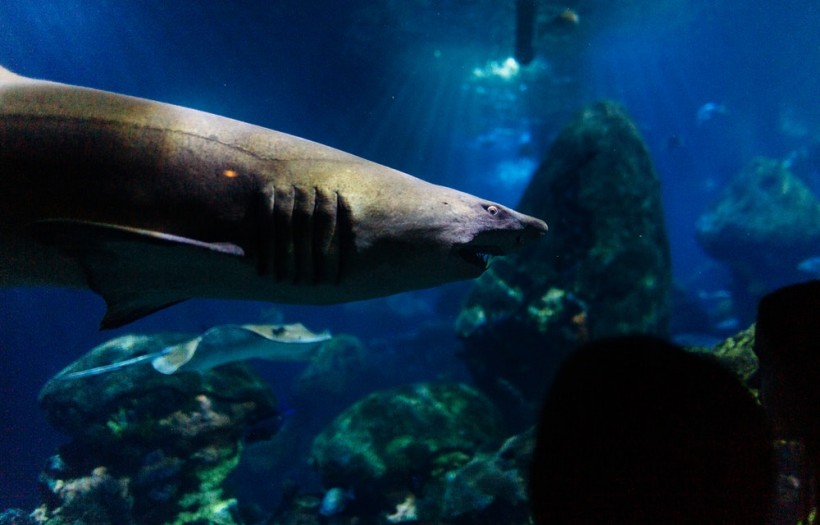One of the longest-lived and most mysterious shark species has just been spotted in the Caribbean far beyond its natural hunting ground. Experts say the Arctic shark has been spotted in tropical waters for the first time.
For the First Time, Sleeper Shark Spotted off the Coasts of Belize

The latest sighting suggests that the enigmatic Arctic creatures may be more widespread in the deep waters than we believe.
The sleeper shark sighting happened in April by researchers from Florida International University. With the aid of local fishers, the team had been trying to tag tiger sharks at Glover's Reef when they unexpectedly captured a small-eyed, 11-foot-long sleeper shark. When it was brought to the surface, it was slow-moving compared to other fish the team had encountered.
In a statement from the Florida International University Predator Ecology and Conservation Lab, Devanshi Kasana, a Ph.D. candidate, says that he knew it was an unusual creature, and so did the local fishers who hadn't seen anything like it in all their years of fishing.
Due to an inbound storm and fear of endangering the sleeper shark, the team quickly released their catch and documented the encounter.
Upon consultation with various experts, the team surmised that their brief encounter was with a sleeper shark. Their findings were published in the journal Marine Biology, titled "First report of a sleeper shark (Somniosus sp.) in the western Caribbean, off the insular slope of a coral atoll."
ALSO READ: Basking Sharks Migration Habits Explained: Where They Go During Winter and Summer
What are Sleeper Sharks?
Sleeper sharks are aptly named for their sluggish behavior. Even in the fish' usual deep-water habitat, they swim slowly and expend little energy to hunt or scavenge for food, often catching their meal as they sleep.
Perhaps, the most well-known of these sharks is the Greenland Shark, Somniosus microcephalus; it is also believed to be one of the longest-lived animals on the planet, with a lifespan considered to extend up to 400 years. Although these sharks could snack on humans, theoretically, their natural environment is far from any human activity, and no shark attacks of the species have ever been reported.
Their bodies are normally toxic to humans, thanks to the sharks' adaptations to survive in the depths. However, Icelandic people have figured out a way to consume the mysterious Arctic shark; cured Greenland shark flesh is considered a local delicacy.
Due to its large size, researchers believe they captured a Greenland shark of hybrid offspring and a related Sominousis Pacificus species.
Sleeper sharks typically spend most of their days in the Arctic's frigid waters. However, some populations have been observed to migrate, and occasional sightings in the tropics have been reported in recent years, including in the Caribbeans.
The latest sighting adds to evidence of the sharks' widespread population. However, the recent encounter was much closer to shore than any other sighting of sleeper sharks. On the other hand, since the reef has waters reaching as far down as 9,500 feet, experts believe it is a possible source of cold temperatures where the sharks can dwell comfortably, reports Gizmodo.
RELATED ARTICLE: Great White Sharks Make Friends Too! Predators of the Sea Has a Surprising Social Life
Check out more news and information on Ocean in Science Times.




![Earth's Quasi-Moon Kamo‘oalewa Could Originate From Lunar Surface Not Asteroid Belt [Study]](https://1721181113.rsc.cdn77.org/data/thumbs/full/53275/89/56/50/40/earths-quasi-moon-kamo-oalewa-could-originate-from-lunar-surface-not-asteroid-belt-study.png)









